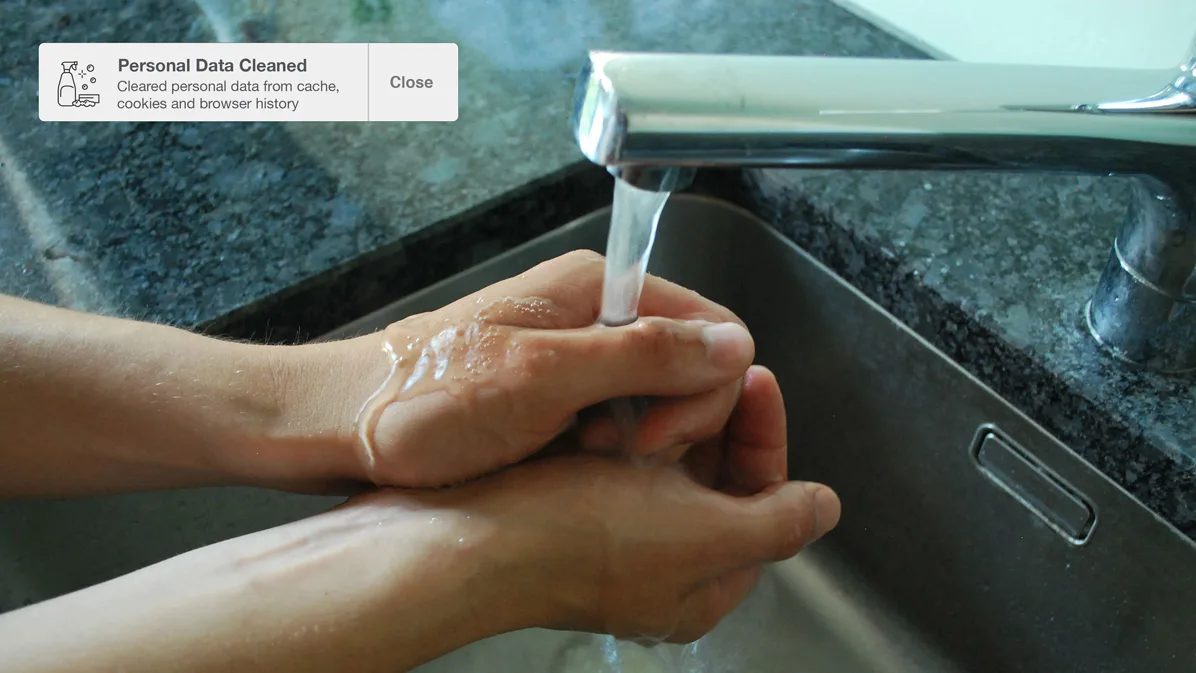Cookies are omnipresent online, and while some browsers block trackers automatically, most of us are followed by invisible eyes everywhere we go on the internet. The option to clear your cache or your cookies is buried in settings, subtly deterring users from cleaning them out.

To make privacy tools easier to use, Huynh designed gestural interfaces to control them–like wiping your screen to wipe out trackers, spraying a room fragrance to automatically mask your online presence through a VPN, and lowering the blinds in your house to pull up the encrypted Tor browser to hide your digital activity.
“The digital space where we dwell, in forums or platforms, these have become part of our living spaces,” Huynh explains. “It’d be nice to connect [digital spaces] to tangible gestures we already know that are mundane and a part of our daily life.”
Right now, most of Augmented Mundanity OS is still a concept–though Huynh has a working prototype for the ability to wipe your screen to wipe away your cookies. But she thinks there’s an opportunity to make our physical living spaces part of a more intuitive interface for security-related digital actions, the same way other gestural interfaces have made aspects of the digital world more convenient to access or navigate.
Huynh sees these concepts as interventions that give the user more power over their digital lives. “The interface shows what you can do and what you’re not allowed to do–if there’s only one button, that’s the only path you can take,” Huynh says. “On a more broader level I see this as a humble start to how we can design interfaces that are different and empower the user in the digital space.”
[Image: courtesy Martina Huynh/Design Academy Eindhoven]Huynh is currently looking for technical collaborators to help her bring some of these ideas to life, including the idea that you could flick pop-up ads away with your finger, or clean out all your personal data by using special soap when you wash your hands.
In a world where all privacy settings are difficult to access and not at all user-friendly, Augmented Mundanity points to an alternative way of interacting with computers in physical space. And as data privacy becomes more and more important, controlling it should be as easy as a wipe.
Recognize your brand’s excellence by applying to this year’s Brands That Matter Awards before the early-rate deadline, May 3.



